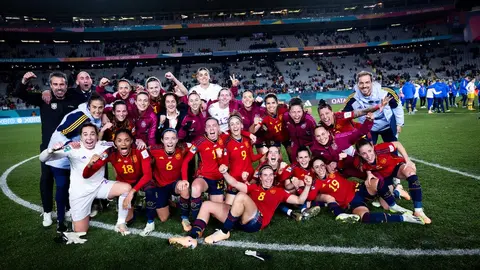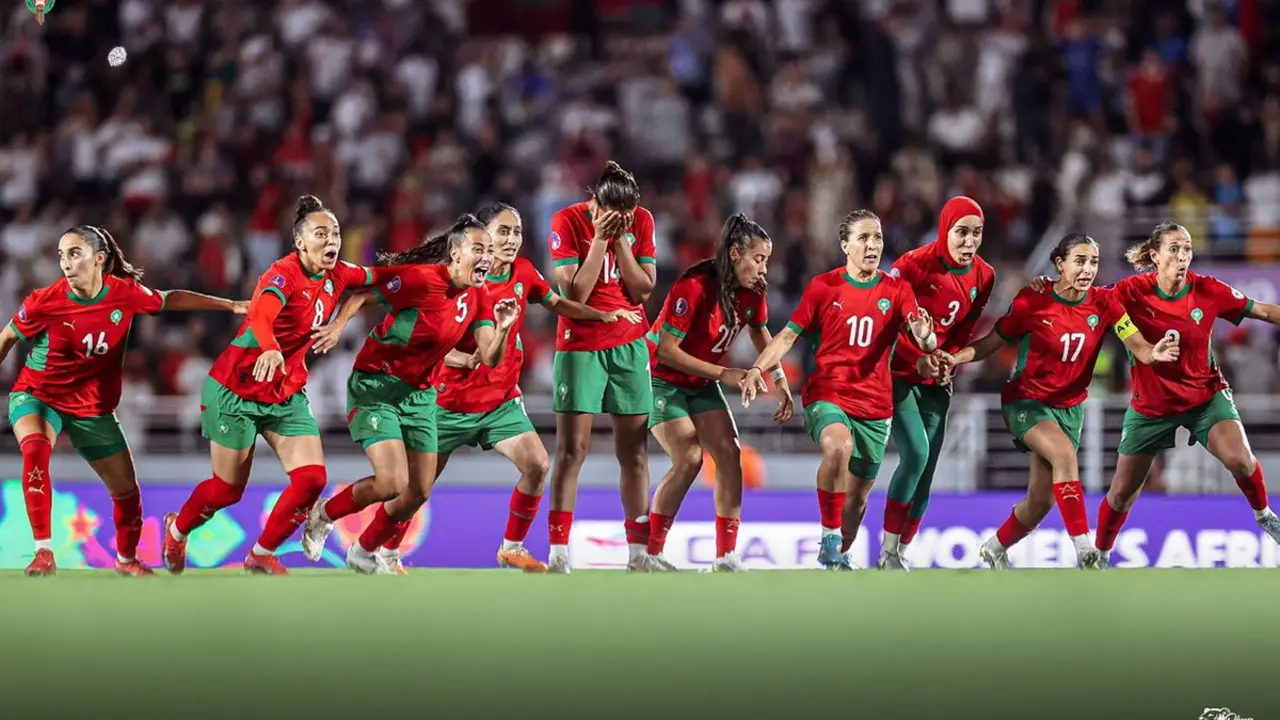Spain embroider the star of world football after beating England in the final

The history of women's football in Spain was officially recognised in 1983, although since 1970 Concha Sanchez and other women had been playing underground in a different society to that of 2023.
Forty years later, the Spanish national team has won the final of a World Cup. In Sydney (Australia), in front of more than 40,000 spectators and with the Royal Family accompanying Jorge Villa's players with Doña Letizia and the Infanta Sofia in the Olympic Stadium box.
⭐️ ¡¡𝗦𝗢𝗠𝗢𝗦 𝗖𝗔𝗠𝗣𝗘𝗢𝗡𝗔𝗦 𝗗𝗘𝗟 𝗠𝗨𝗡𝗗𝗢!!
— Selección Española Femenina de Fútbol (@SEFutbolFem) August 20, 2023
🏆 ¡¡LO HEMOS LOGRADO!!
🥹 No sabéis lo que esto significa realmente.
🫶 ¡¡HISTORIA DEL FÚTBOL ESPAÑOL!!
Lᴏs sᴜᴇɴ̃ᴏs sᴇ ᴄᴜᴍᴘʟᴇɴ... ❤️
🆚 #ESP - #ENG I 1-0 #JugarLucharYGanar I #FIFAWWC I #CampeonasDelMundo pic.twitter.com/9Ynd3EgNNc
England were an old acquaintance from Spain's recent matches. The reigning European champions knocked Spain out of the tournament in the quarter-finals and were coming into the World Cup in Australia and New Zealand on the back of a fourth-place finish at the last event in France 2019.
La Reina, acompañada por la Infanta Sofía, durante el partido de la final de la #FIFAWWC.
— Casa de S.M. el Rey (@CasaReal) August 20, 2023
➡️https://t.co/Pk3fCHLpdn pic.twitter.com/1mk8ZnBixV
But what was at stake for Spain in that final was much more than a World Cup. It is the triumph of a sporting model in which politics has tried to get its hand in with the excuse of feminism. Without ideology, women's football had been growing for years. Without adulterating the sport, girls already wanted to play football at school. It was their natural path that some wanted to take advantage of in order to further divide.

The eternal mistake of comparing men's and women's football led FIFA to mis-sell the TV rights. No country wanted to pay so much money for a sport that does not have the same impact on society. In the end, common sense prevailed and a joint purchase between several European countries meant that Spain's matches were watched and the number of fans increased as the qualifiers went on.
Olga Carmona scored the first goal after the English had sent a ball against the post to send Spain into raptures. That goal did justice to Spain's game of control and arrivals down the flanks with the usual threat from Paralluelo, the revelation of the tournament.
Spain continued to rule the game in the second half. VAR gave Hermoso the chance to make it 2-0, but Earps saved the penalty. The big news of the tournament was to hear on the stadium PA system the referee Tori Penso explain that, after a lengthy review, she had decided that the handball inside the box was a penalty in Spain's favour.
The moment Spain won the World Cup.#ESP | #FIFAWWC pic.twitter.com/95L4NYR4u5
— The Athletic | Football (@TheAthleticFC) August 20, 2023
Villa's girls knew how to play the final. Because a match like this requires a different kind of performance, managing the tempo and knowing when you can't miss. They looked like veterans, and Alexia Putellas, the two-time Ballon d'Or winner and Spain's benchmark player, has long been relegated to the bench despite having recovered from a serious knee injury. In the 90th Putellas popped up and almost scored Spain's second goal from the corner of her own substitution.
Thirteen interminable minutes for Spain were added on in Sydney. A gash to Greenwood's eyebrow caused by Paralluelo had the game halted for a long time. Spain were in control of the game and still had more pace than the English who were losing balls through over-control.
The new order of world women's football will be led by Spain for the next four years. Let this not serve to open old quarrels, nor to settle scores, much less to ideologise a sport that is the heritage of a country. Now it remains to embroider a star on the girls' jersey as well. From Iniesta to Carmona, from South Africa to Australia.










